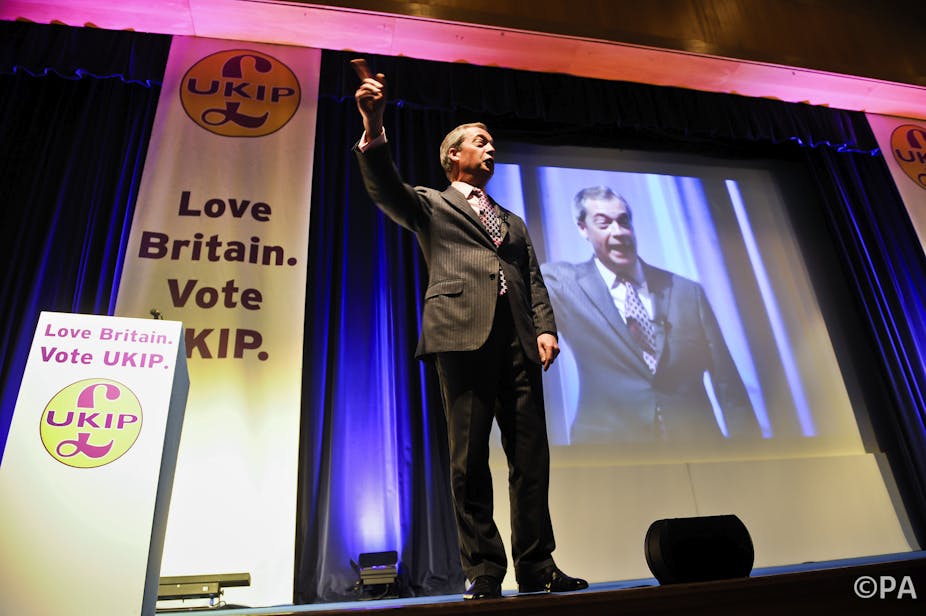The theoretical underpinning of the modern global economy has broken loose. The so-called Washington consensus based on neoclassical, laissez-faire economics has encountered a sustained challenge from the 2008 financial crisis and alternatives are being actively sought. It’s about time Nigel Farage was not left as the only voice doing the same when we consider the impact of immigration and multiculturalism.
Establishing a new economic consensus might take a while, but what is clear is that there has been no vigorous attempt by the leaders of the global economy to return to laissez-faire capitalism. On the contrary, a firmly regulated market economy with robust government intervention appears to be the order of the day.
It is curious then that those who have been most critical of neoclassical economics in the West – in the main from the left – have tended to agree with its approach with regard to immigration. While they adopt demand controls on cross-border movement of goods, services, finance, and investment, they are in favour of a “borderless” world for people. This contradiction has usually been justified by the belief that it is a human right to live anywhere in the world.
The economic case for this approach to immigration is straightforward: labour is a mobile factor of production that must be permitted to move freely to wherever there is demand for it, improving global efficiencies and resource allocation. It naturally follows that immigration will help raise economic growth and, conversely, immigration controls can be a barrier to growth. But evidence suggests immigration does not necessarily have an overall positive impact on growth.
Cultural baggage
But the social, political and cultural impact of mass immigration has been of little concern to the laissez-faire economists for whom labour is simply labour. Historically, the well-intentioned focus of those favouring this approach to immigration has been on immigrants themselves, on the difficulties of settlers in new lands and societies far from home
But immigrants are people who bring with them all manner of cultural and religious attributes – some of which are very much at odds with those in the society in which they have settled. As I have argued before, for advocates of open borders, a similarly laissez-faire approach to the culture and religious characteristics of immigrants is adopted under the rubric of “multiculturalism”, the theoretical underpinning for which is cultural relativism.
The outcome of this is that immigrants are allowed to lead lives pretty much akin to those they might have led in their places of origin. That being so, some groups – particularly in segregated neighbourhoods – have proceeded to demand separate rights, resources, institutions and exemptions to the law.
In stark contrast, little, if any, attention has been paid to such non-economic impacts of mass immigration on the established population. On the contrary, it is argued that national and local governments, as well as the indigenous population, must accommodate to the modus vivendi and separatist demands of the settlers. It transpires that this neglect of the views of the majority population is a prime cause for the increasing angst around the subject.
Quite simply, very large numbers of people are opposed to the often profound transformation to their communities from large-scale immigration and are saying enough is enough. This is a key reason why opinion polls show a large majority of the population (77% according to the recent British Social Attitudes Survey) want to see immigration reduced. What is particularly revealing is that of the 31% who think that immigration is good for the economy, half still wish to see it cut.
‘Unrecognisable’ Britain
The sentiments behind this have been picked up by Nigel Farage of UKIP – a free marketeer – by his argument that some things are more important than economic growth. The inference was made clear in his speech at the UKIP spring conference on February 28 when he argued that parts of Britain have become “unrecognisable” because of immigration. In fact, this line of reasoning has usually been used by those opposed to laissez-faire economics. Consider environmentalists’ demands for green policies – which businesses argue are harmful to economic growth – as an essential element in switching to renewable energy in order to cut greenhouse gas and tackle climate change.
Those advocating a laissez-faire approach to culture and faith should beware a common paradox. Often no such freedom is on offer to those within the segregated religious-ethnic minority communities that have sprung up in many towns and cities. On the contrary, for very many their lives are dictated by high levels of intervention from family members and community leaders, so that the outcome for them is distinctly devoid of individual liberty. The often highly oppressive consequence of this for these citizens is, in fact, mono-culturalism and mono-faithism.
So a laissez-faire stance on culture has contributed to significant levels of self-segregation, isolation, and lack of integration. Just as unfettered laissez-faire economics is rightfully thought to have been harmful, so it is time for more people than Farage to recognise that a similar approach to culture and religion runs counter to the goal of social cohesion.

